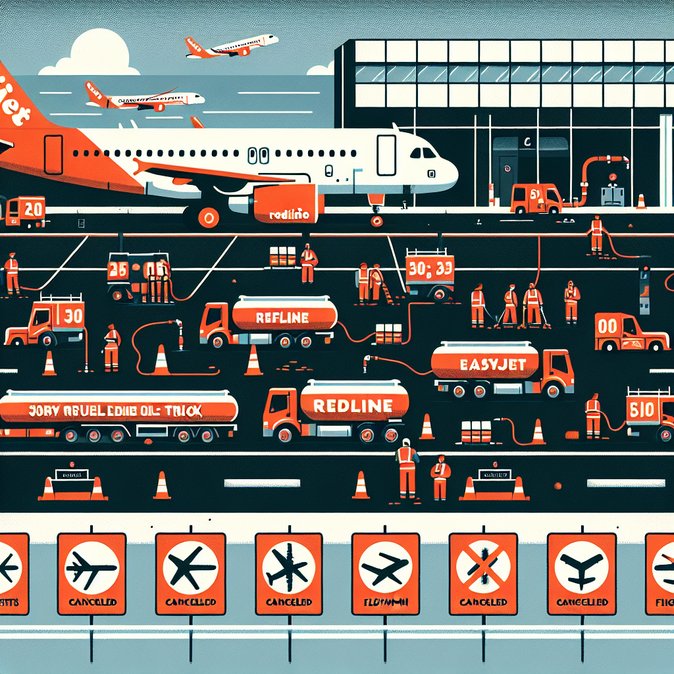
Early-morning passengers at London Gatwick on Monday 27 October were greeted by picket lines rather than fuel bowsers after 30 of the airport’s 35 Redline Oil refuellers walked out for a second 24-hour strike. The Unite-organised workers, who service almost all EasyJet departures from the North Terminal, accuse parent company World Fuel Services of ‘pay apartheid’—claiming they earn several pounds per hour less than colleagues performing identical roles for rival contractors.
Management flew in temporary staff from other UK airports to keep fuel flowing, but operational resilience was stretched. EasyJet pre-emptively cancelled 18 domestic and short-haul flights and warned of potential knock-on delays throughout the half-term peak. Corporate travel managers reported difficulty re-booking time-critical day trips to European financial centres.
Unite regional officer Ben Davis said the company’s contingency plan was “costing more than settling the dispute,” adding that members were prepared for “rolling action” into November unless a deal matching airport-wide pay rates is tabled.
Fuel-farm labour disputes rarely hit headlines, but mobility professionals note that Gatwick has become an industrial-relations flashpoint: ground-handlers, cleaners and Border Force support staff have all threatened or taken action in the past 18 months. The episode underscores the importance of robust duty-of-care and ticket-flexibility policies for travellers using the UK’s second-busiest airport.
If strikes escalate, businesses may need to shift regional flights to Heathrow or London City. Aviation analysts say Gatwick’s single-runway configuration leaves little slack to recover from fuelling or baggage-handling disruptions, amplifying the impact on on-time performance and connections.
Management flew in temporary staff from other UK airports to keep fuel flowing, but operational resilience was stretched. EasyJet pre-emptively cancelled 18 domestic and short-haul flights and warned of potential knock-on delays throughout the half-term peak. Corporate travel managers reported difficulty re-booking time-critical day trips to European financial centres.
Unite regional officer Ben Davis said the company’s contingency plan was “costing more than settling the dispute,” adding that members were prepared for “rolling action” into November unless a deal matching airport-wide pay rates is tabled.
Fuel-farm labour disputes rarely hit headlines, but mobility professionals note that Gatwick has become an industrial-relations flashpoint: ground-handlers, cleaners and Border Force support staff have all threatened or taken action in the past 18 months. The episode underscores the importance of robust duty-of-care and ticket-flexibility policies for travellers using the UK’s second-busiest airport.
If strikes escalate, businesses may need to shift regional flights to Heathrow or London City. Aviation analysts say Gatwick’s single-runway configuration leaves little slack to recover from fuelling or baggage-handling disruptions, amplifying the impact on on-time performance and connections.










